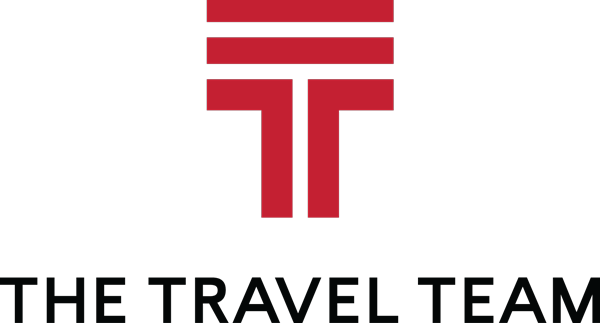Here at The Travel Team, we know that managing business travel can be tricky. Combing through expense reports, rerouting flights, and booking hotels that suit the preferences of your travelers and the budgetary constraints of your organization, on top of other responsibilities, isn’t easy. So, if you’ve managed to maintain a system that gets you through the day and your travelers safely to their destination and promptly back in the office, we commend you.
But here’s the thing.
By flying solo, you might be shouldering unnecessary burdens and cheating yourself out of savings–both time and moneywise. To help you identify opportunities for improvement, we’ve compiled a list of five common ways managing corporate travel in house is holding you back, and how a TMC can help.
They help keep track of your travelers.
Keeping track of who’s coming and going is a task in and of itself. Yes, the internet gives us convenient access to arrival and departure times, booking information, and the like, but access to information is only half the battle. Being able to not only track but react to your traveler’s needs is the other half.
Maybe a flight has been rerouted, requiring extra travel arrangements to get your employee to their destination. Maybe the trip was canceled outright and credits or unused tickets now need to be managed. Situations like these can be taxing for one person or even a small in-house team to keep up with.
By partnering with a travel management company (TMC), you’re enlisting the services of professionals with the time and resources to know exactly where your travelers are at any given time, where they are going, and handle any situations that arise. A good TMC has access to, not only your travelers’ contact information and travel itinerary but to real-time data they use to proactively track, contact, and help travelers navigate a travel disruption or crisis rather than wait for travelers to reach out to them.
Akin to tracking travelers, good TMCs will also track and report travelers’ unused tickets and vendor credits and remind travelers to use them before they expire, helping to protect your company against loss.
They can provide access to precise reporting.
If you’re managing your company’s corporate travel yourself, you likely use expense reports as a kind of rosetta stone, loosely translating dollar amounts into travel data. But expense data doesn’t tell the whole story, and it can be hard to break down lump sums into valuable information like the actual number of hotel nights your travelers are accruing during any given month.
It can also be difficult to spot trends such as frequently visited hotels or cities. And while you may think you’re getting by just fine without that granular data, it’s good to remember that well-reported and well-analyzed data isn’t just informational; it’s valuable business intelligence that can be used to optimize spend and even negotiate lower travel costs.
This is another area where working with a TMC is beneficial. TMCs have access to much more detailed reporting than your average expense summary, and the best TMCs will help you analyze it to see where you could be maximizing cost avoidance.
They can help make the most of vendor relationships.
Even if you find that managing your corporate travel is fairly simple, you could unknowingly be missing out on opportunities to build reward-yielding relationships with travel vendors like car rental companies, hotels, and even airlines.
When you partner with a TMC, they’ll be able to analyze your existing vendor relationships to see if you qualify for any upgrades or new or improved discounts. For example, maybe data analysis reveals you are sending a large number of travelers to Cleveland every year but are spreading out their stays over a dozen different hotels. By concentrating their stays at select hotels moving forward, you might qualify for preferred rates or other perks.
But even if you wouldn’t qualify on your own, being partnered with a TMC allows you to take advantage of their relationships with vendors, netting you perks you might not otherwise have access to like free breakfast or wi-fi.
They can provide guidance in building and executing policy.
Even if you have a travel policy in place, executing that policy is a much different task. Everyone tends to think they’re an expert when it comes to travel, and employees might have preferred airlines or hotel chains. With an unmanaged travel program, it can be difficult to get employees to comply with existing mandates, which can cost time and money in the long run.
It can also be difficult to decide how strict of a policy to employ without prior experience. Whether too strict or too lenient, both can be counterproductive to compliance and alignment depending on what your business drivers are.
This is where the expertise provided by a TMC can be useful. Drawing from prior experience, they can help you analyze your corporate culture as well as your goals in order to help you draft and execute a plan that aligns with them. With a plan in place, a good TMC can then take these rules and make sure they are applied at the point of sale.
They can serve as a 24/7 resource.
This one might seem obvious, but having to field all travel-related requests takes precious time away from other matters of business. Not only that, but these requests can come in at any time, not just during office hours.
In these situations, a TMC is there to act as the go-between, insulating you from having to be on-call round the clock, while reassuring your travelers that their needs will be taken care of, no matter the time.
Why it might be time for a TMC
By transitioning to a third-party managed travel program, you’ll have an expert to help guide your travel decisions, helping you avoid unnecessary expenses, saving you time and headaches, and ensuring the best possible travel experience for all of your internal stakeholders.


